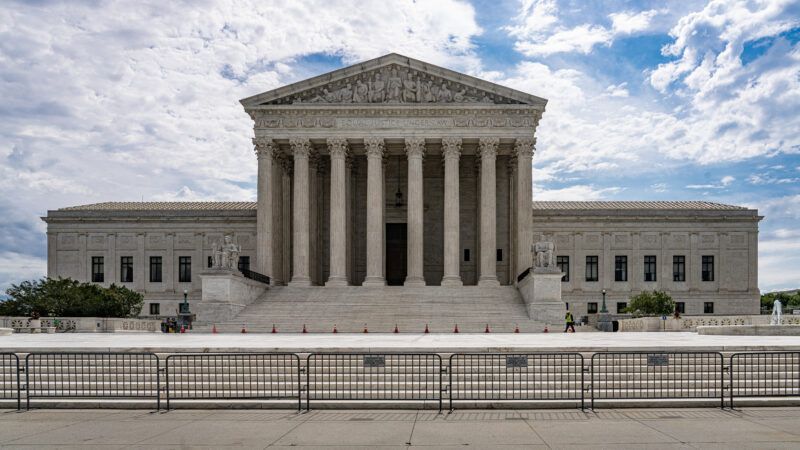Does the First Amendment Shield a Government Official From Being Censured by His Colleagues?
The Supreme Court will hear the case this fall.

In 2018, the Board of Trustees of the Houston Community College System (HCC), a nine-member elected body that governs a network of community colleges in the greater Houston, Texas, area, officially censured one of its own members for "inappropriate conduct" and for acting in a fashion "not consistent with the best interests of the College or the Board." According to that member, the censure vote caused him mental anguish and violated his right to freedom of speech. The U.S. Supreme Court will hear oral arguments in the matter this fall.
The case is Houston Community College System v. Wilson. David Buren Wilson was an elected member of the HCC Board of Trustees who strongly objected to some of the board's decisions, including the vote to fund a campus abroad in Qatar. He made his displeasure known by speaking out in the local media, publishing a website that cataloged his criticisms, orchestrating a robocall campaign against the HCC, hiring a private investigator to investigate his fellow board members, and suing the board itself. After the board censured him, he also sued on free speech grounds.
In April 2020, Wilson prevailed before a three-judge panel of the U.S. Court of Appeals for the 5th Circuit, which said that "a reprimand against an elected official for speech addressing a matter of public concern is an actionable First Amendment claim."
But that ruling did not sit well with eight other 5th Circuit judges, who argued that a full sitting of the court should have reheard the case and reached the opposite result. In particular, Judge Edith Jones, joined by Judges Don Willett, James Ho, Kyle Duncan, and Andrew Oldham, faulted the three-judge panel for turning the First Amendment on its head. "The First Amendment was never intended to curtail speech and debate within legislative bodies," Jones wrote. The HCC board, in other words, had every right to issue "a censure against this gadfly legislator."
As Jones put it, "fellow legislators may strike hard verbal blows, and all's fair when they exercise corporate authority to censure or reprimand one of their members; such actions are not a violation of the First Amendment, but its embodiment in partisan politics."
Ho wrote separately to further emphasize his objections to the three-judge panel's mishandling of the free speech principles involved in the case. "The First Amendment guarantees freedom of speech, not freedom from speech," he wrote. "It secures the right to criticize, not the right not to be criticized." Ho then effectively told Wilson to suck it up and stop being such a crybaby. "Leaders don't fear being booed," he wrote. "And they certainly don't sue when they are."
A majority of the U.S. Supreme Court may well heed those dissenting 5th Circuit voices when the Court considers the case this fall. After all, as the HCC points out in its principal brief, "some public speech by an individual legislator may well provoke a public censure by the body's current majority, speaking in the name of the institution itself. When it does, both statements are part of the cycle of speech and counter-speech that the First Amendment seeks to foster, not constrain."


Show Comments (24)